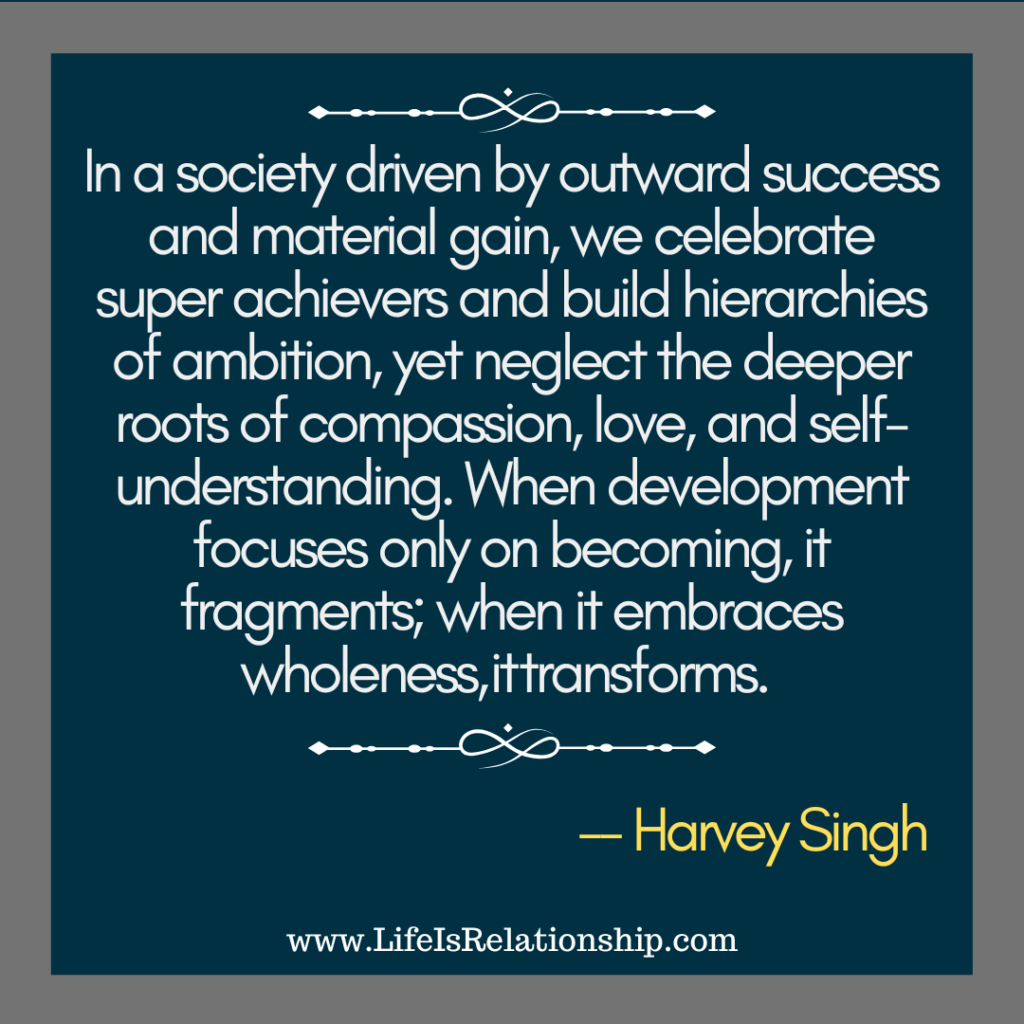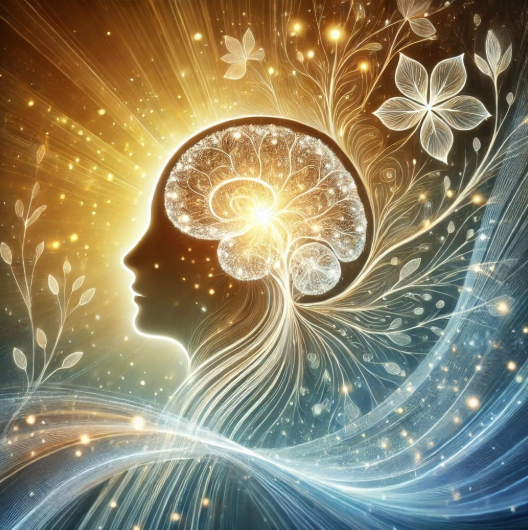Let us inquire together: what does it mean to truly develop as a human being? Have we paused to observe the patterns of our lives and reflect on what we are pursuing?
In our world today, success is often measured by achievement. A person is deemed successful when they climb the ladder of professional success, accumulate wealth, or garner social validation. This is the mode of psychological becoming—a constant pursuit of self-gain and external validation. But have we ever asked: what does this way of living do to us, to our relationships, and to the world we are creating?
Take an example: a young woman works tirelessly to rise in her career. She achieves one goal, but immediately sets her eyes on the next. Her sense of self-worth hinges on applause, promotions, and recognition. Yet, the more she achieves, the more isolated she feels. Why? If we observe closely, we can see that her inner world is filled with the noise of ambition and fear—the fear of losing, of failing, of not being enough. In the pursuit of external goals, she neglects her relationships, barely noticing the growing distance with her family, friends, or even herself.
When such achievements are challenged—when failure comes or recognition fades—what happens? Does she reflect on her way of living, or does she set off on the same cycle of striving, chasing, and fearing? Is this development? Or is it a kind of fragmentation, where the individual becomes divided—pursuing outward success while their inner world remains confused, lonely, and unexamined?
Now, let us consider another way. Take the example of a biologist investigating the well-being of a system. They do not only study the visible effects, such as a plant’s growth, but examine the roots, the soil, the ecosystem. True development, like such investigation, requires attending to the whole—not just the outer achievements but the inner understanding, the unseen foundation of growth. This includes the ability to inquire, to observe our own thought patterns, and to see how our actions shape the whole of our lives.
When we focus solely on achievement, the “I”—the self-image—becomes the center of all activity. It craves validation, thrives on comparison, and views others as competitors or stepping stones. This creates division within ourselves and in society. Our relationships suffer because they are no longer based on genuine connection but on utility: “What can you do for me?”

Have you observed how this extends beyond individuals to nations and societies? Countries boast of their advancements—greater economies, superior technologies—but fail to address the fragmentation within. Without inner awareness, achievements become hollow, driven by conflict, competition, and loneliness. Moreover, when we create a mind that accumulates vast knowledge and becomes highly specialized, we may produce efficiency, but it often lacks sensitivity. Sensitivity to the needs of others, to the subtleties of relationships, and to the interconnectedness of life itself. A mind without sensitivity is a mind that operates mechanically, unable to address the deeper crises of existence.
So, we must ask ourselves: what is the purpose of development? Is it merely to become something—to acquire, to achieve—or is it to understand the wholeness of life? True development is not about becoming; it is about attentiveness to the entire process of becoming and seeing its fallacy. When this process is deeply examined, it drops away, dissolving the ego that drives fragmentation.
It is about being. It is about attentiveness to our thoughts and emotions, observing how our desires and ambitions shape our actions and relationships, and nurturing the quality of our connections with others and the world.
When we neglect this inner awareness, we create a world of division and isolation—a world where the pursuit of self-gain comes at the cost of harmony and relationship. But if we begin to nurture the roots of our being, if we question and observe the workings of the self—our egos, desires, and opinions—might we create something entirely different? A world where development is not fragmentation but wholeness, where intelligence works with sensitivity, and where being takes precedence over the illusions of becoming.
What kind of world are we creating today? And what kind of world could we create if we moved beyond mere achievement to embrace true holistic development? Let us reflect on this, not in haste, but with care and attention.



